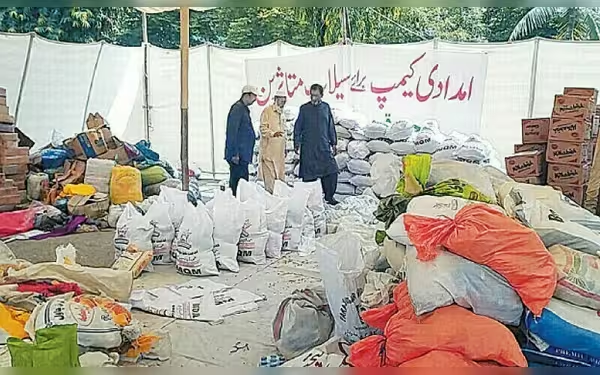Saturday, November 16, 2024 07:24 PM
Pakistan Government's Relief Measures: Control Over Solutions
- Relief measures focus on control, not solutions.
- Low conviction rates highlight justice system failures.
- Need for long-term policies beyond temporary aid.
 Image Credits: dawn.com
Image Credits: dawn.comPakistan's relief measures prioritize control over genuine solutions, neglecting root societal issues.
The government of Pakistan has been under scrutiny for its approach to addressing the pressing issues faced by its citizens. Many critics argue that the administration's focus on relief measures is more about maintaining a narrative of control rather than genuinely solving the problems at hand. This perspective raises important questions about the effectiveness of these measures and their long-term impact on society.
In recent years, the government has introduced various relief packages aimed at alleviating the hardships faced by the population, especially during times of economic downturns or natural disasters. However, these initiatives often appear to be temporary fixes rather than sustainable solutions. For instance, while financial aid may provide immediate relief, it does not address the underlying issues such as unemployment, inflation, and lack of access to essential services.
Moreover, the statistics regarding crime rates, particularly those involving women and children, paint a grim picture. The conviction rate in crimes against these vulnerable groups in Sindh is alarmingly low, indicating a systemic failure in the justice system. This situation calls for more than just relief measures; it demands a comprehensive strategy that includes legal reforms, better law enforcement, and community support systems.
Critics argue that the government’s obsession with presenting a facade of control can lead to neglecting the root causes of societal issues. Instead of merely providing financial assistance, there is a pressing need for policies that foster economic growth, create jobs, and ensure that all citizens have access to quality education and healthcare. Without addressing these fundamental problems, relief measures may only serve to placate the public temporarily.
While relief measures are undoubtedly important in times of crisis, they should not be the sole focus of the government. A balanced approach that combines immediate assistance with long-term solutions is essential for creating a resilient society. It is crucial for the government to shift its narrative from one of control to one of genuine care and commitment to solving the problems that plague the nation. Only then can we hope for a brighter future for all citizens of Pakistan.













